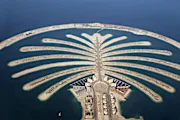China's $2bn deal with Ghana sparks fears over debt, influence and environment
 Dr Mahamudu Bawumia with H.E Sun Chunlan, Vice-Premier of the State Council of China
Dr Mahamudu Bawumia with H.E Sun Chunlan, Vice-Premier of the State Council of China
As part of a memorandum signed between the two nations last year, Beijing will finance $2 billion worth of rail, road and bridge networks, and in exchange, China will be granted access 5% of Ghana's bauxite reserves.
The deal has drawn criticism from environmental activists, political opposition, and international government investment partners, with a new report from risk consultancy EXX Africa highlighting a lack of transparency and increasing threat to debt sustainability.
Last week, in his first budget following the latest IMF visit, Ghana's Finance Minister Ken Ofori-Atta pledged to boost spending by 21%, promising higher public sector wages and more infrastructure projects. He also announced plans to raise $3 billion in international debt markets.
The Chinese government has released phase one of funding for a substantial road construction project in Ghana as part of a $2 billion infrastructure deal which gives Beijing access to the country's reserves of bauxite — a crucial source of aluminium.
The deal has drawn criticism from environmental activists, political opposition, and international government investment partners, with a new report from risk consultancy EXX Africa highlighting a lack of transparency and increasing threat to debt sustainability.
A Chinese delegation led by Vice Premier Sun Chunlan last week agreed to release the first tranche of funding, worth $649 million, for nationwide road construction projects following bilateral talks with Ghanaian Vice President Mahamadu Bawumia.
Projects under phase one have been sanctioned by China Export and Credit Insurance Corporation, known as Sinosure, with six further projects due to be confirmed by year-end.
As part of a memorandum signed between the two nations last year, Beijing will finance $2 billion worth of rail, road and bridge networks, and in exchange, China will be granted access 5% of Ghana's bauxite reserves.
The $2 billion Master Project Support Agreement (MPSA) would see Chinese state-owned hydropower and construction company Sinohydro gain access to the mineral, and is part of a wider loan facility worth $19 billion. Bauxite is the world's main source of aluminum.
Beijing sweetened the deal by committing to fund 100 vehicles for the Ghana Police Service and offered a 300 million yuan ($42.7 million) grant and a debt write off of 250 million yuan.
China has a similar arrangement in place with Guinea, exchanging $20 billion in loans across the next two decades for access to bauxite ore. Between 2000 and 2017, China agreed around $143 billion in infrastructure loans across the continent.
Elizabeth Stephens, managing director at Geopolitical Risk Advisory, told CNBC via email that while often lauded as offering a shared path to prosperity, such high profile deals frequently fail to lift African nations' poorest residents out of poverty.
"This is because African governments often lack the will or capacity to ensure the proceeds from mega-projects have the desired trickle-down effect and Chinese investors do not make this a prerequisite of investment," she added.
Debt sustainability
Last week, in his first budget following the latest IMF visit, Ghana's Finance Minister Ken Ofori-Atta pledged to boost spending by 21%, promising higher public sector wages and more infrastructure projects. He also announced plans to raise $3 billion in international debt markets.
The expansionist push comes as President Nana Akufo-Addo and his ruling New Patriotic Party (NPP) look to next year's presidential and parliamentary elections, with former president John Mahama's National Democratic Congress (NDC) aiming to build an opposition coalition comprising nine entities.
A special report published Tuesday by analysts at EXX Africa highlighted several concerns that are absent from the Ghanaian government's spending plans.
The EXX Africa report highlighted that Ofori-Atta's spending pledges would increase the budget deficit to 4.7% of GDP in 2020 from 4.5% in 2019. It anticipates that much of the $3 billion debt raising will go towards public sector pay increases and benefits to state employees, along with boosting expenditure in key electoral constituencies.
Ghana has a history of drastic spending hikes during electoral cycles, and this proposed increase comes at a time of slowing economic growth, with output expected to fall from 7.46% in 2019 to 5.61% in 2020 and 4.22% by 2022, according to the IMF.
Meanwhile, government debt levels are not expected to fall far below the current level of 63% of GDP over the coming years, exacerbating concerns about debt sustainability in a country which was bailed out by the IMF in 2015 amid chronic budget overruns, and is currently rated as being at high risk of debt distress.
With reliance on overseas development finance increasing, Ghana faces a souring of relations with the U.S. and other investment partners, such as the International Finance Corporation, over a recent contract cancellation involving U.S. government funding to the consortium managing its state power utility. This could further its reliance on Chinese lending.
"The extent to which the loan facility is beneficial depends on the terms of the loans and the way in which the money is invested, neither of which are clear," Stephens said.
A Rio Tinto worker looks at a ship that is loaded with bauxite, the raw material for aluminum, at Rio Tinto's Weipa operations in Cape York, on the north-eastern tip of Australia March 7, 2019.
Those comments echoed the EXX Africa study which also criticized the bauxite deal for a lack of transparency.
"The deal risks further undermining the government's credibility for transparency ahead of the 2020 elections and weaken its debt sustainability outlook," it added, pointing out that the current NPP government has added almost $10 billion to the national debt since taking office in 2017.
- Bawumia jabs NDC roads record
- You’re Ghana’s best Vice President ever – Gabby hails Bawumia’s success
- Repurchase Agreements a game changer for financial markets - Bawumia
- Pwalugu multipurpose dam and irrigation project to begin by end of November – Bawumia
- Massive infrastructure coming - Bawumia to North East chiefs
- Read all related articles








Comments
Post a Comment